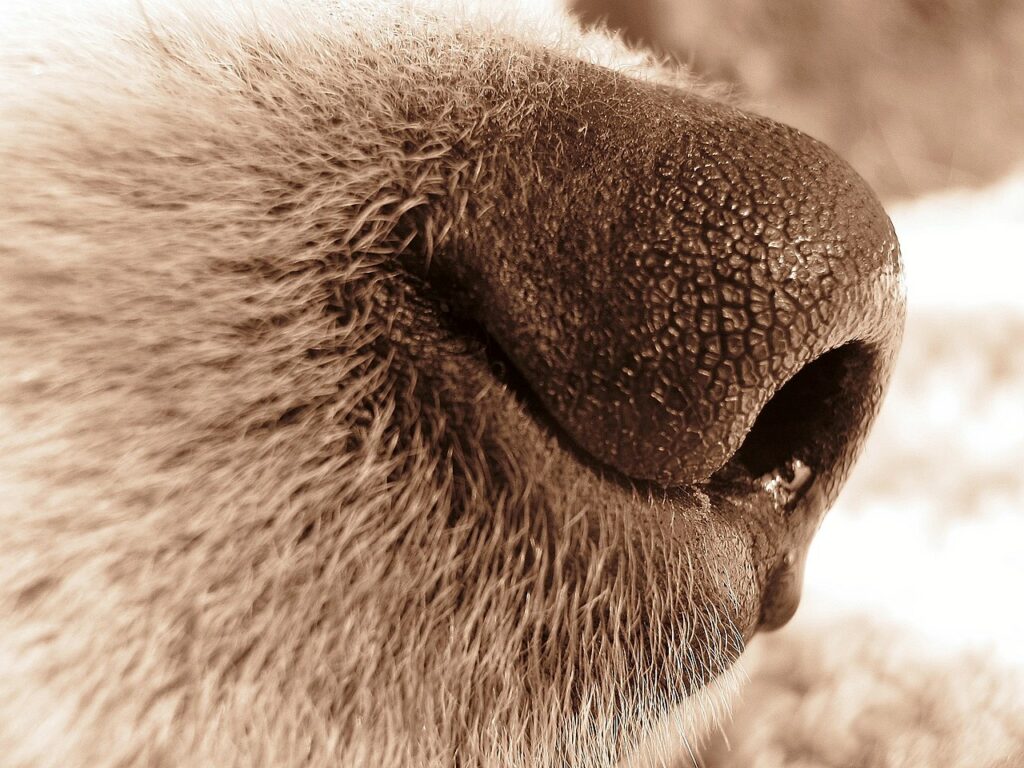Kennel cough is a highly contagious respiratory infection that affects dogs of all ages and breeds.
As a pet owner, it’s essential to be aware of this common canine ailment and its potential reoccurrence.
In this article, we will explore whether a dog can get kennel cough twice, the factors contributing to a possible second infection, and ways to protect your furry friend from this troublesome condition.
Stay tuned as we dive into the world of kennel cough and help you keep your dog healthy and happy.
- What is Kennel Cough?
- Can a Dog Get Kennel Cough Twice
- What Does a Dog Coughing Sound Like?
- How Can Dogs Catch Kennel Cough?
- How is Kennel Cough Diagnosed?
- Is Kennel Cough Dangerous or Life-threatening?
- Should I Vaccinate My Dog Against Kennel Cough?
- FAQs
- Q: What are the symptoms of kennel cough in dogs?
- Q: How is kennel cough in dogs treated?
- Q: Can I treat kennel cough in my dog at home?
- Q: How is kennel cough in dogs diagnosed?
- Q: How long does it take for kennel cough to go away?
- Q: What causes kennel cough in dogs?
- Q: How can I prevent my dog from getting kennel cough?
- Q: Can humans catch kennel cough from dogs?
- Q: What should I do if I suspect my dog has a kennel cough?
- In Conclusion
What is Kennel Cough?

Kennel cough, also known as canine infectious respiratory disease complex, is a contagious respiratory condition found mostly in dogs.
It is caused by several different viruses and bacteria, making it difficult for veterinarians to diagnose the specific cause.
A characteristic sign of kennel cough is a persistent dry, hacking cough that can be triggered by excitement, exercise, or pressure on the trachea.
Other symptoms include sneezing, nasal discharge, lethargy, loss of appetite, and fever.
It is commonly contracted in places where dogs are kept together such as kennels, boarding facilities, and at dog shows.
The infection spreads through direct contact with contaminated surfaces such as bowls, toys, or bedding and via airborne droplets.
Vaccinations are available to help prevent kennel cough and reduce the severity of the disease, but they do not provide complete protection against all the viruses and bacteria that cause it.
Treatment typically involves antibiotics, cough suppressants, and rest.
While the infection is usually mild and self-limiting, dogs with weakened immune systems and puppies are more susceptible to developing complications such as pneumonia.
If you suspect your dog has a kennel cough, it’s important to seek veterinary care promptly to help them recover quickly and avoid spreading the infection to other animals.
Can a Dog Get Kennel Cough Twice

Yes, a dog can get kennel cough twice. Kennel cough, also known as canine infectious tracheobronchitis, is caused by various viruses and bacteria, with the most common being Bordetella bronchiseptica.
Since there are multiple pathogens involved, a dog can be reinfected by a different strain even after recovering from an initial infection.
Furthermore, immunity to kennel cough after an infection or vaccination can wane over time, leaving your dog susceptible to the illness again.
To reduce the risk of recurring kennel cough, it’s essential to keep your dog’s vaccinations up-to-date, maintain good hygiene, and monitor their interactions with other dogs, especially in shared spaces like dog parks and boarding facilities.
What Does a Dog Coughing Sound Like?
A dog coughing can sound different depending on the cause and severity of the cough. It can sound like a hacking noise or a high-pitched gagging sound.
Dogs with a mild cough might only cough occasionally, while others may cough continuously.
If your dog is coughing, it is essential to monitor their breathing closely and observe other symptoms that might be present.
For example, if your dog has difficulty breathing, it can be a sign of a more severe respiratory issue.
If your dog is coughing up mucus or blood, it is imperative to seek immediate veterinary attention.
Additionally, some dogs may cough up a hairball-like substance if they have been grooming themselves excessively or if they have ingested something that may have irritated their throat.
Overall, if you notice your dog coughing frequently or has difficulty breathing or other concerning symptoms, it is best to consult your veterinarian to find the underlying cause and receive proper treatment.
How Can Dogs Catch Kennel Cough?
Kennel cough is a highly contagious respiratory disease that affects dogs. It is caused by various types of bacteria and viruses, such as Bordetella bronchiseptica, canine adenovirus type 2, and canine parainfluenza virus.
Dogs can catch kennel cough through direct contact with infected dogs or by inhaling airborne particles shed by them.
This usually happens in shared environments, such as shelters, boarding facilities, and dog shows.
Dogs that are stressed, have a weak immune system, or are already sick are more susceptible to contracting the disease.
Symptoms of kennel cough include a dry cough, gagging, sneezing, and nasal discharge. In severe cases, it can lead to pneumonia or other respiratory complications.
It is essential to take preventative measures to reduce the chances of your dog catching kennel cough, such as getting them vaccinated, avoiding crowded dog areas, and maintaining good hygiene practices, including regular cleaning of their living spaces and toys.
How is Kennel Cough Diagnosed?
A veterinarian may perform a physical exam to check for signs such as a persistent cough, fever, and nasal discharge.
They may also recommend diagnostic tests to determine the cause of the infection. These may include a tracheal wash, which involves collecting a sample of mucus from the windpipe, or a chest X-ray to check for inflammation or fluid in the lungs.
In some cases, a blood test may be performed to rule out other conditions that can cause similar symptoms. Treatment for kennel cough typically involves antibiotics to fight off bacterial infections and cough suppressants to manage symptoms.
In severe cases, hospitalization may be required. Prevention is key in managing kennel cough, and vaccinations are available for most of the viruses and bacteria that cause it.
It is important for dog owners to keep their pets up-to-date on vaccinations and to avoid exposing them to potentially infected dogs.
Is Kennel Cough Dangerous or Life-threatening?
Although kennel cough is often not life-threatening, it can still pose a risk to dogs, particularly those with weaker immune systems or underlying health conditions.
In its mild form, kennel cough can cause a persistent cough, sneezing, nasal discharge, and a mild fever. However, in severe cases, it can lead to pneumonia, which can be life-threatening, especially in puppies and senior dogs.
Therefore, it is important for dog owners to seek veterinary care if they suspect their pet has a kennel cough. To prevent its transmission, dog owners should avoid exposing their pets to other dogs who may have the illness and keep their dogs’ vaccinations up-to-date.
Overall, while kennel cough may not always be dangerous or life-threatening, it should still be taken seriously and treated promptly to prevent further complications.
Should I Vaccinate My Dog Against Kennel Cough?
Yes. Vaccinating your dog against kennel cough is a preventative measure that can help to protect them from this illness.
The vaccine for kennel cough is administered either via a nasal spray or injection and is recommended for dogs who are frequently exposed to other dogs.
It is important to note that like with any vaccine, there may be some mild side effects, such as fever, nasal discharge, and lethargy.
However, these side effects are usually short-lived and outweigh the risks of contracting kennel cough. Ultimately, the decision to vaccinate your dog against kennel cough is up to you as its owner.
It is always recommended to consult with your veterinarian to determine the best course of action for your individual dog’s needs.
FAQs
Q: What are the symptoms of kennel cough in dogs?
A: The most common symptom of kennel cough in dogs is a hacking cough, which can sound like your dog is trying to clear their throat. Other symptoms include lethargy, loss of appetite, and fever.
Q: How is kennel cough in dogs treated?
A: Treatment for kennel cough in dogs may include antibiotics to treat any bacterial infection present, as well as cough suppressants and anti-inflammatory medication. Your vet can provide a tailored treatment plan for your dog based on their specific symptoms.
Q: Can I treat kennel cough in my dog at home?
A: While there are home remedies that can help alleviate your dog’s symptoms, it’s important to contact your vet if you suspect your dog has a kennel cough. This will ensure that your dog receives proper treatment and can recover from the respiratory infection.
Q: How is kennel cough in dogs diagnosed?
A: Your vet can diagnose kennel cough in dogs based on their symptoms and a physical examination. In some cases, they may recommend further testing, such as blood work or X-rays, to rule out other respiratory illnesses.
Q: How long does it take for kennel cough to go away?
A: The length of time it takes for a dog to recover from kennel cough varies, but it typically takes around six weeks for the cough to fully resolve. In some cases, kennel cough can develop into pneumonia, which requires more intensive treatment.
Q: What causes kennel cough in dogs?
A: Kennel cough in dogs is caused by a combination of bacteria and viruses, with the Bordetella bacteria being one of the most common culprits. It’s highly contagious and can spread quickly in areas where there are many dogs in close proximity.
Q: How can I prevent my dog from getting kennel cough?
A: One of the best ways to prevent kennel cough in dogs is to vaccinate them against it. Additionally, it’s important to keep your dog away from other dogs that may be infected and to practice good hygiene, such as washing your hands and keeping your dog’s sleeping area clean.
Q: Can humans catch kennel cough from dogs?
A: While kennel cough is a respiratory infection, it’s specifically adapted to dogs and doesn’t typically affect humans. However, it’s important to contact your vet if you’re concerned about your dog’s symptoms or think you may have been exposed to an infected dog.
Q: What should I do if I suspect my dog has a kennel cough?
A: If you suspect your dog has kennel cough, it’s important to keep them away from other dogs and contact your vet. They can provide a diagnosis and recommend treatment options to ensure your dog recovers quickly and doesn’t spread the infection to other dogs.
In Conclusion
Understanding that dogs can indeed contract kennel cough more than once is crucial for pet owners.
While the risk of reoccurrence may seem daunting, taking preventive measures and staying informed about your dog’s health can significantly reduce the chances of a second infection.
By ensuring your furry companion receives proper vaccinations, maintaining good hygiene, and keeping a close eye on their interactions with other dogs, you can safeguard your beloved pet against the recurrence of kennel cough.
Ultimately, a proactive approach to your dog’s well-being will help them enjoy a happy, healthy, and cough-free life.





Leave a Reply